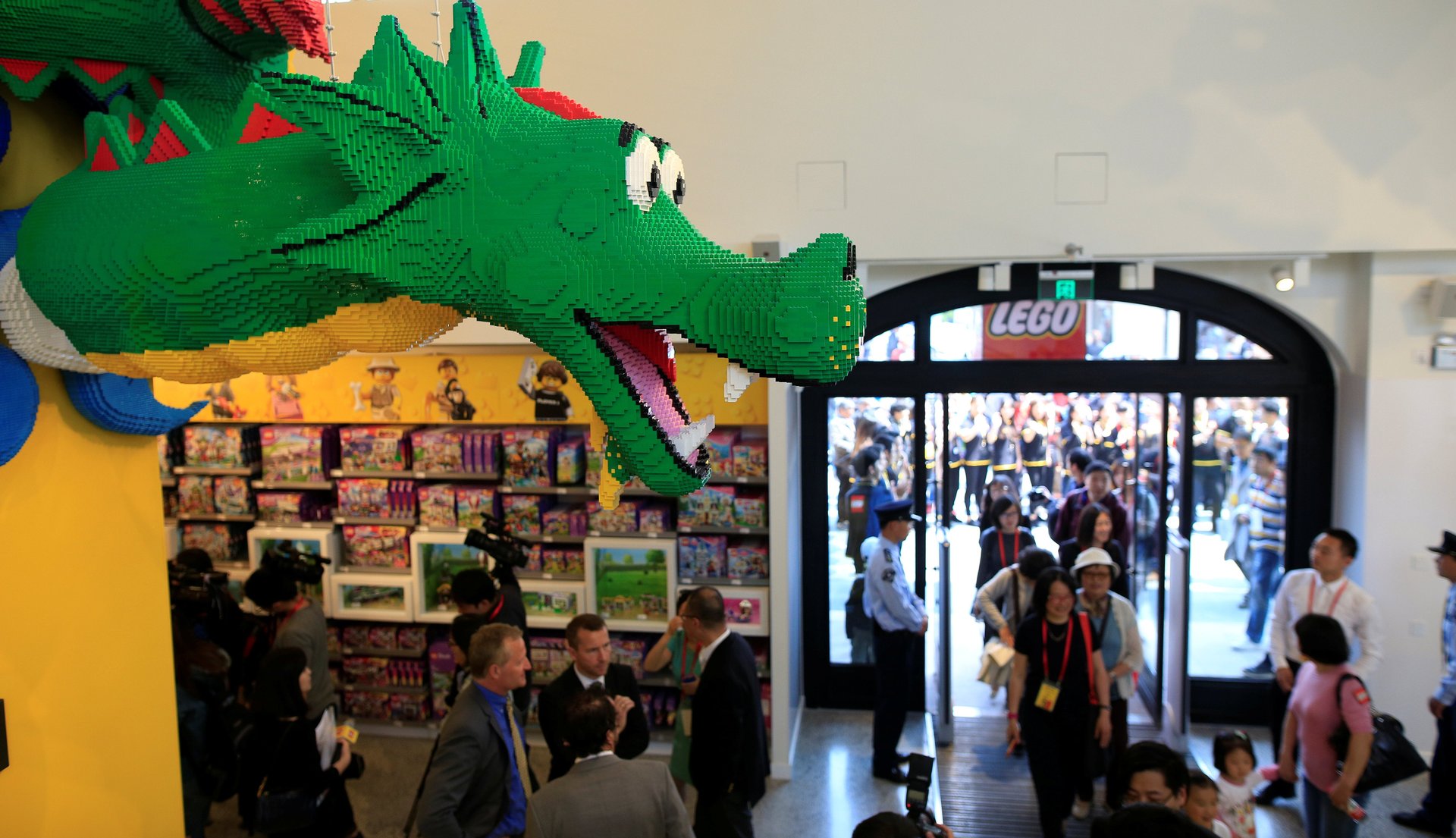LEGO opens its first toy brick plant in China
Lego is opening its first factory in China.


Lego is opening its first factory in China.
The Danish toymaker opened the doors to fifth factory in the world, and first in Asia, in China’s eastern Zhejiang province on Nov. 25. Lego first announced plans to set up the Jiaxing factory, geared toward production for the Asian market, in March 2013. The 40 acre-factory now employs more than 1,200 people and is expected to manufacture nearly 80% of the company’s products sold in the booming Asia market.
“We have built a state of the art factory in Jiaxing that adheres to the same global production standards as our factories across the world,” chief executive officer Jørgen Vig Knudstorp said in a statement. The company also owns and operates factories in the brand’s home country Denmark as well as Hungary, Mexico and the Czech Republic. The investment for the Chinese factory amounts to a “3-digit million Euro figure,” the company said.
Located in the city dubbed “National Model City for Greening,” the latest factory marks a win for the environment too. The company has installed 20,000 solar panels on the roofs. The technology is expected to generate almost 6 gigawatts of clean energy annually, and reduce CO2 emissions in Jiaxing by more than 4,000 tonnes per year, according to the company’s estimates.
China has been a hotbed for Lego’s growth in recent years: Revenue in the country climbed up 40% in 2015, double the company’s global average. In May this year, Lego set up its largest retail store in Shanghai—the country’s commerce and finance hub is only around 100 kilometers from Jiaxing, making the distribution of products easier.
However, the creator of colorful plastic bricks has not had entirely smooth sailing in China. In October 2015, Lego faced backlash for refusing to sell in bulk to dissident Chinese artist Ai Weiwei, whose art often sparks outrage from the authoritarian regime. Critics accused the company of trying to avoid conflict with the Chinese government.
“We’ve seen people building concentration camps out of Lego and pictures of the Prophet Muhammad,” the CEO justified Lego’s decision to CNBC after the controversy. He said a Lego employee found Ai Weiwei’s suggestion “too sensitive.” Lego has since changed its policy and does not require customers to specify how they’re going to use their bricks when making bulk orders.